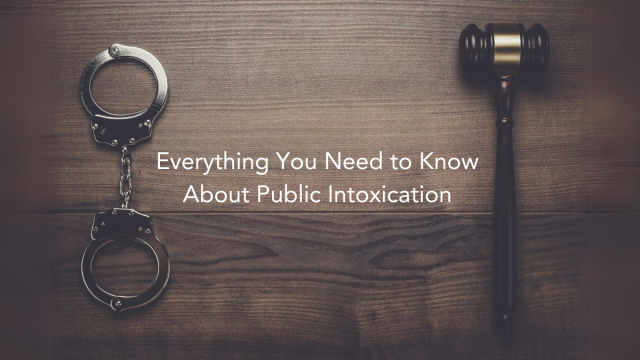Public intoxication, often known as public drunkenness, is considered a misdemeanor. It occurs when individuals are openly intoxicated or high on drugs in public. People are discouraged from being disruptive in public by these rules.
They also justify law enforcement personnel to remove individuals from public settings who may pose a threat to the safety of themselves or the safety of others. In contrast to a conviction for driving under the influence (DUI), which may be subject to mandatory minimum sentences, a public intoxication conviction is typically classified as a less severe misdemeanor felony. If you’re facing public intoxication charges, you can speak with an experienced public intoxication lawyer like Trey Porter.
Keep reading to learn more about public intoxication
Elements of public intoxication charges
Contents [show]
State laws that prohibit public intoxication and where they are located in the criminal code can differ from one state to another. The statutes cover this offense against disorderly conduct in some states. Other states may consider it part of their statute against disturbing the peace. Regardless of the precise terminology, the definition of a public intoxication charge often entails three primary components. To properly sustain a criminal charge, each component must be present. To be more specific, the state needs to establish that the defendant:
- Was under the influence of alcohol or drugs
- Acted in a disruptive or harmful way to oneself, another person, or property.
- Was present in a public place
Under the influence
In many places, in addition to demonstrating that the suspect was under the influence of alcohol or drugs, prosecutors are also required to demonstrate that the accused appeared so out of control and didn’t bother to care for themselves or others. This could involve posing a risk to their personal safety or the safety of others around them.
Causing disturbance
The suspect’s demeanor and actions will play a significant role in the charges against them. Someone who creates a disturbance and annoys other people is more likely to get the notice of the police. In the state of Florida, for instance, an individual can be charged with the crime of disorderly intoxication. The infraction is considered a misdemeanor of the second degree.
Presence in public presence
Another essential component of any allegation of public intoxication is the need for the perpetrator must be physically present in a public setting. What characteristics define a space as public? There is no legal meaning of the term “public place,” and some governments do not even define it. For instance, a person’s vehicle is often not regarded as “private” when parked alongside a street or in a public parking spot because these locations are open to the whole public. In cases involving public intoxication, one of the most typical challenges is to establish whether the setting in which the incident occurred was public or private.
Public intoxication penalties
The penalties imposed for violating the laws of public intoxication can be rather severe, ranging from a Class C misdemeanor, which carries a fine of up to $750 and 15 days of jail, all the way up to a Class D felony, which carries a fine of up to $10,000 and imprisonment of up to 7 years. The severity of the penalty depends on which statute was broken. You can avoid being prosecuted for this offense by being familiar with the law and responsibly conducting yourself in public places.


